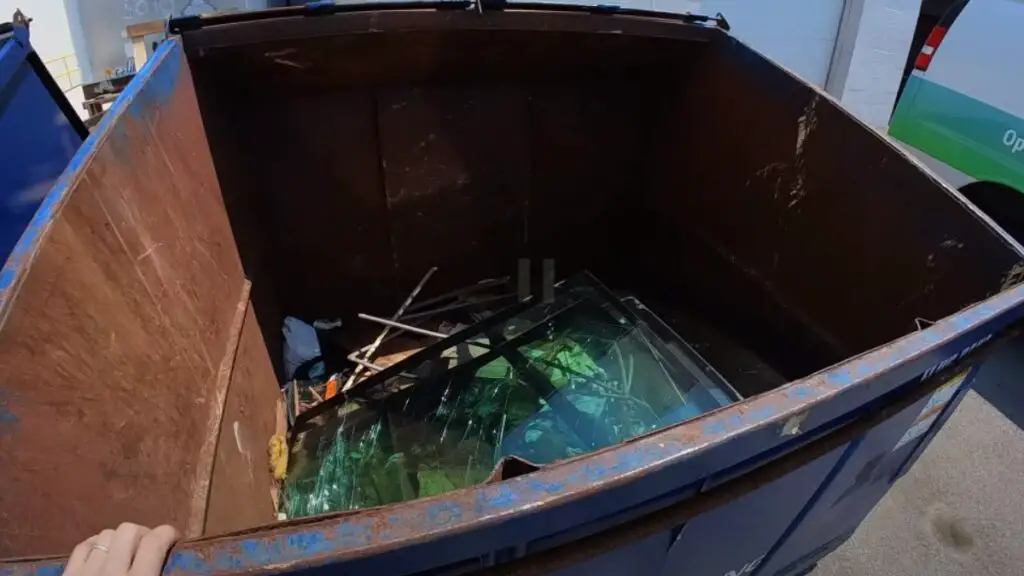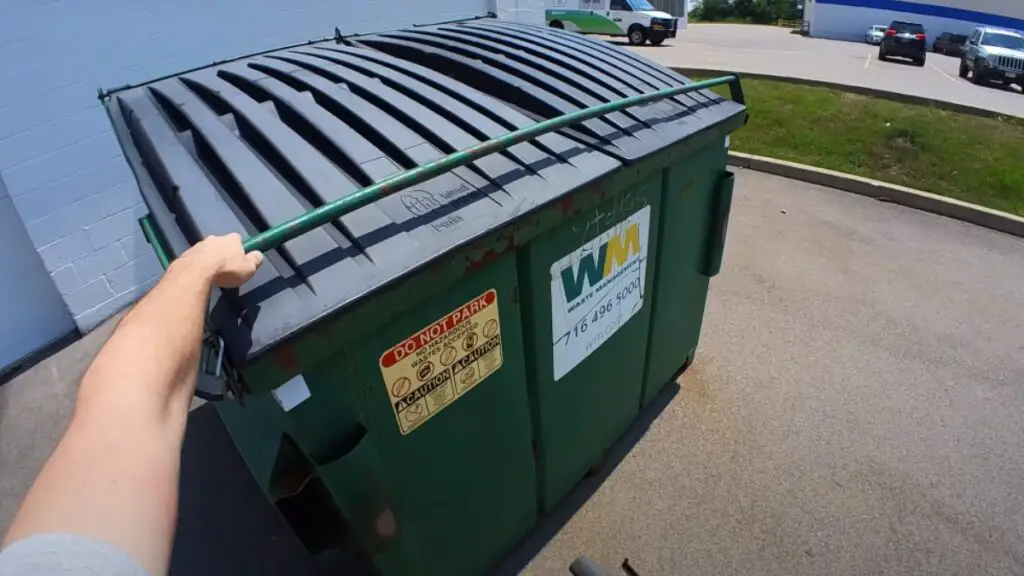New York City, renowned for its towering skyscrapers and vibrant culture, is less known for dumpster diving.
This practice, usually regarded with surprise or even hidden treasures, is, in fact, a thriving pursuit in the city.
But among all dumpster diving enthusiasts and divers, the question arises about the laws of dumpster diving in New York.
In this article, we will dive into the legality and the laws and potential of dumpster diving in New York.
Dumpster Diving in New York

New York is known as “the city that never sleeps,” New York City generates a staggering 12,000 tons of waste every day.
Amidst this colossal waste, a vibrant community of urban scavengers, often referred to as dumpster divers, emerges.
They bravely dive into the city’s dumpsters and trash bins, often uncovering perfectly usable items, from food to furniture discarded by others.
Dumpster diving, though often overlooked, is a practice deeply entrenched in resourcefulness and effectively reducing the city’s waste footprint.
Is Dumpster Diving Legal In New York?
In the state of New York, there’s no specific state statute that considers dumpster diving as illegal.
However, if the dumpster is located on private property, accessing it without permission can lead to a trespassing charge, a violation under Section 140.05 of the New York Penal Code.
In New York City, the Department of Sanitation’s rule (Section 16 RCNY §1-08(f)) prohibits the removal of recyclable materials set out for the Department of Sanitation collection.
Violating this rule can result in a fine of up to $2,000.
Therefore, while dumpster diving is not explicitly illegal in New York, it can potentially lead to legal repercussions under specific circumstances.
Is Dumpster Diving Illegal At Night In New York?
You should note that the act of dumpster diving may not be illegal, trespassing on private property to access dumpsters certainly is.
Plus, some businesses might have their waste containers locked or fenced, which is another barrier.
Night-time dumpster diving might also raise suspicion and could lead to a potential run-in with law enforcement.
Remember, just because it’s not explicitly illegal does not mean it’s without potential risk or consequence.
New York Dumpster Diving Laws
In New York, dumpster diving is technically legal based on a 1988 Supreme Court ruling, California v. Greenwood, which states that garbage becomes public property once it’s discarded.
However, it’s essential to note that while it’s not explicitly illegal at the state or city level, certain aspects could potentially land you in trouble.
For instance, if you’re diving in a dumpster on private property without permission, you could be charged with trespassing.
According to the New York State Department of Environmental Conservation, New Yorkers generate over 14 million tons of garbage each year.
While a substantial portion of this comprises recyclable materials, they often end up in landfills due to improper disposal.
Dumpster diving, therefore, not only has the potential to yield valuable finds but can also contribute to environmental conservation efforts by reusing items that would otherwise be wasted.
What Are The Best Places To Go For Dumpster Diving In New York?
New York offers plenty of locations for dumpster diving enthusiasts, each with its unique treasures waiting to be discovered.
SoHo, known for its high-end stores and boutiques, is a gold mine for those seeking designer items and high-quality goods.
If you’re interested in electronics, the areas around tech companies in Lower Manhattan can be a surprising source of discarded gadgets and hardware.
For food items, try diving into residential areas like Park Slope in Brooklyn, where many conscious citizens are prone to throwing out perfectly edible food due to sell-by dates.
According to the Natural Resources Defense Council, New Yorkers discard 3.9 million tons of food per year, so there’s a high chance you’ll find something.
Here are some of the best places to go for dumpster diving in New York:
Lower East Side, Manhattan
Williamsburg, Brooklyn
Astoria, Queens
Bushwick, Brooklyn
Greenwich Village, Manhattan
SoHo, Manhattan
Upper West Side, Manhattan
Park Slope, Brooklyn
Chinatown, Manhattan
Midtown Manhattan
How Much Money Can You Make From Dumpster Diving In New York?
The profitability of dumpster diving in New York varies greatly based on many factors, such as the location, timing, and the diver’s ability to identify valuable items.
A report in “The Guardian” states that some full-time dumpster divers make up to $2,500 a month, but this isn’t the norm for everyone.
A more common figure cited by regular divers is around $600 to $800 a month.
This income comes from reselling items found in dumpsters, which include everything from furniture and electronics to books and clothes.
It’s important to note that dumpster diving requires a significant time investment and isn’t always reliable as a steady income source.
Certain laws also regulate this activity, so it’s crucial to be aware of local regulations and respect private property.
So, if you are planning to dumpster dive at Hampshire, Delaware, or Best Stores For Dumpster Diving; you should check these state laws before going to your hunt.
Safety Precautions For Dumpster Diving In New York?
Dumpster diving, although unconventional, has emerged as a trend among urban explorers, environmentalists, and those looking to make a saving.
Especially in a city like New York, where waste generation per day was approximately 12,000 tons as of 2017, dumpster diving can yield unexpected treasures.
However, it’s crucial to approach this activity with safety in mind.
Firstly, always wear sturdy gloves to protect your hands from sharp objects and potentially hazardous materials.
A CDC study stated that 7.2% of waste workers had been injured at least once in a year, underlining the risk of dealing with trash.
Secondly, ensure you’re equipped with a flashlight, as visibility can be reduced in dumpsters, increasing the danger of injury.
Lastly, steer clear of dumpsters outside restaurants to avoid spoiled food and dumpsters near hospitals to prevent coming into contact with medical waste.
According to the New York State Department of Health, medical waste can contain potentially infectious materials.

Frederick Perez is the founder of Scrape Dude. He loves exploring and finding hidden treasures in unexpected places. Frederick has been dumpster diving and gold panning for years, turning his hobby into our website to share his adventures. He’s known for his friendly advice and exciting stories, inspiring others to discover the joy in these unique hobbies. His expertise makes Scrape Dude a trusted and fun place to learn and explore.


